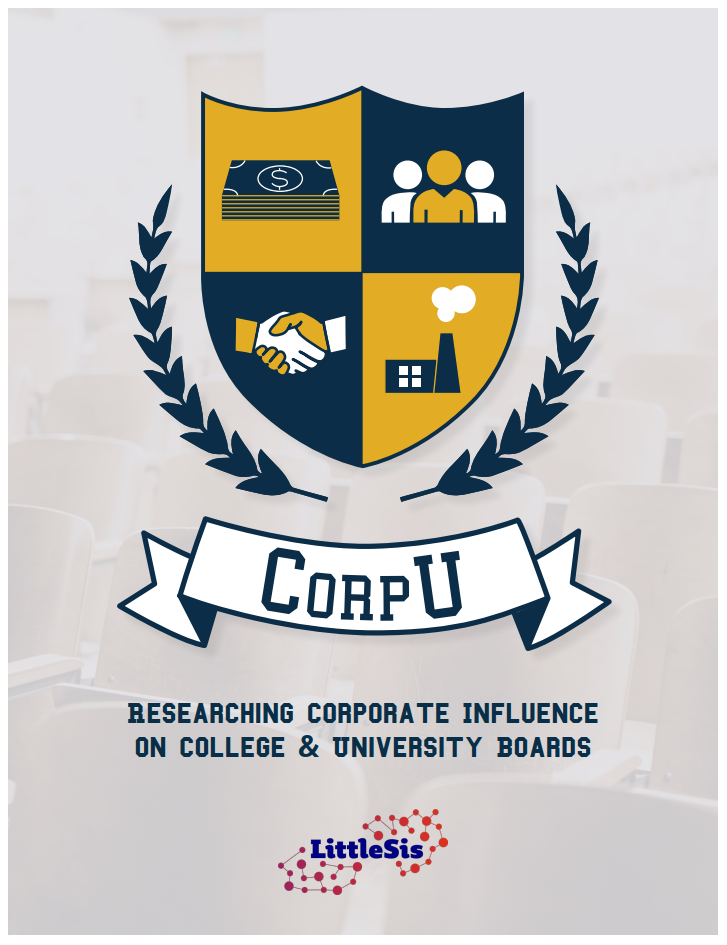Introduction
Universities and colleges are sites where powerful interests coalesce. Developing a refined analysis of these networks of power can help campus campaigners strategically challenge their administrations and advance justice-oriented demands. Fossil fuel divestment campaigns in particular can use research on the ties between universities and extractive corporations to identify targets, develop messaging, and expose the contradictions between lofty sustainability statements and actual allegiances to the fossil fuel industry.
The most obvious figure in power is the university president, tasked with managing the budget, programs, policies, and social life at the institution. But alongside the President there is an expansive web of individuals that exert influence at universities and colleges, including administrators, directors of research centers, heads of foundations, prominent donors, local elected officials, and of course, members of governing boards.
Boards members, often called “trustees”, or sometimes “officers,” “managers,” or “regents,” have specific and outsize power over academic institutions. They constitute the body responsible for hiring and overseeing the President, setting and executing long range plans, approving the budget, endowment and investments, handling public relations, guiding fundraising, and ensuring compliance with applicable rules and regulations. Given their breadth and depth of influence, it’s important to examine what corporations and institutions board members are connected to in order to gain insight into their agenda.
